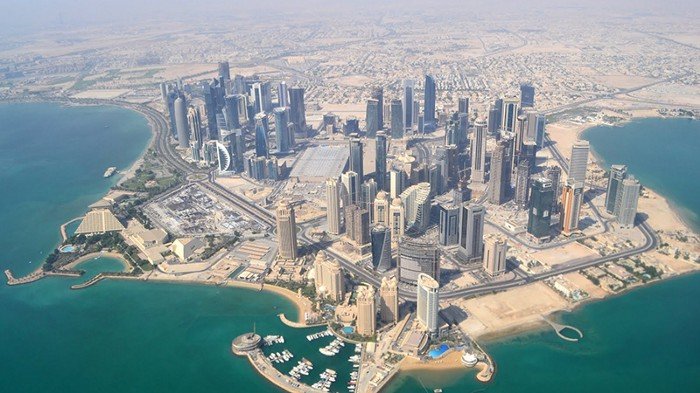Qatar’s heart of darkness
For a small country with a short history, Qatar punches well above its weight division. Between the upcoming FIFA World Cup, the success of Al Jazeera News, and the piles of money being thrown at international art and real estate markets, the country has turned its oil and gas reserves into global recognition.
That’s all fine and good, but the country’s international standing is less than ‘peachy’. Generally speaking, Qatar is viewed as the backward cousin who stumbled into money, moved to the big city, and is now desperately trying to justify his presence as more than dumb luck. Or the plotline to The Beverly Hillbillies…
Obviously, this is not an assessment that sits well with the locals.
In their mind, the oil and the associated wealth is both a manifestation of God’s favour, and a tool to be welded in his name. Whether that means buying Ferraris, funding covert wars in neighbouring countries or enslaving Filipino maids is largely irrelevant. God provided the oil and money, spending it is part of his plan, and any attempts at criticising Qatar for doing so is like criticising God himself.
This is all very neat and convenient when it’s contained within a local bubble and reinforced by state media, but it quickly falls apart under international scrutiny. Which is precisely what happened when Qatar was awarded the 2022 FIFA World Cup. Overnight the kingdom went from relative obscurity to intense media focus and, much to the local’s surprise, the appraisal was far from glowing.
Articles about modern-day slave labour, media censorship and the limited rights of women highlighted the dark side of Qatar’s social fabric, and told uncomfortable stories. For a country that was only used to hearing how wonderful it was, the international criticism caused confusion and howling outrage. Because how could Qatar be wrong if it was doing God’s will?
This leads us down an existential rabbit hole and into Qatar’s very own heart of darkness; what if all the oil and money isn’t a personal high-five from God, but a random accident of history?
Since nobody wants to entertain that terrifying reality, the country overcompensates, treating any accomplishment (no matter how modest), as though it was divine confirmation of Qatar’s worthiness.
This creates a cheer squad mentality and means boring concepts like talent, experience and humility are swept aside in the rush to celebrate and promote anything Qataris do.
It’s why government employees feel a 9am to 2pm work day is reasonable, why college graduates feel they should be parachuted into managerial roles and why any criticisms from the foreign press regarding these practises is treated as a personal insult.
Or to put it another way, “If God didn’t want us to [insert dubious activity], he wouldn’t have given us the oil to do it.”
You can find more tips on living and working in Qatar in my book — God Willing: How to survive expat life in Qatar.
